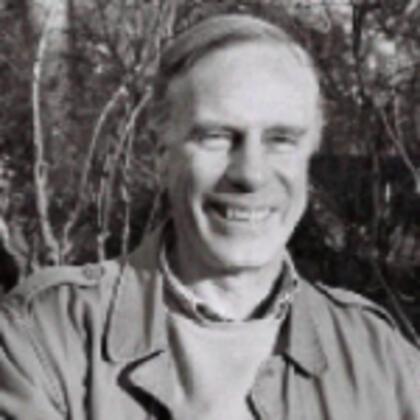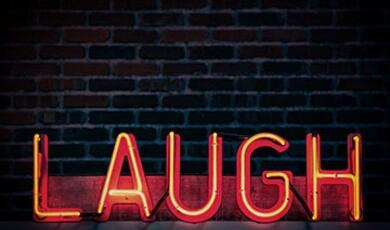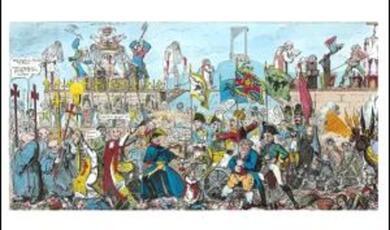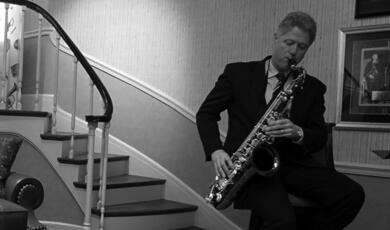The Importance of Proving Things
Share
- Details
- Text
- Audio
- Downloads
- Extra Reading
Proofs are important not just for developing critical reasoning, and not simply for avoiding errors, but for progress in mathematics itself. This talk will explain why, and Mark Ronan will present a fascinating array of mathematical examples. The moral of the lecture is two-fold. We need to question our proofs, however good they look, and we must question our assumptions. If we don't, we may miss something vitally important, and non-Euclidean geometry is a glorious example. It has become extremely useful to modern mathematics, in areas surprisingly far removed from geometry.
Download Text
Gresham Lecture, 10 March 2011
The Importance of Proving Things
Professor Mark Ronan
Alexander the Great (356–323 BC) conquered the Persian Empire, which included Asia Minor, Egypt and the ancient Near East, right through to Afghanistan and the Indus Valley in what is now Pakistan. His conquests brought the Greek language and Greek ideas to large parts of the Near East, and in Egypt he founded a new city, Alexandria that later became a great focal point for trade and new ideas.
After Alexander's death in 323 BC his general Ptolemy ruled Egypt until his death in 283, and Egypt was subsequently ruled by the Ptolemaic dynasty until the Roman conquest in 30 BC. Ptolemy founded the great library of Alexandria, which became the foremost centre for scholarship in the world. There around 300 BC, Euclid worked.
Euclid wrote The Elements, the greatest textbook of all time. Starting with 23 definitions and 5 postulates for plane geometry, he proceeded by means of lemmas, theorems and proofs. His five postulates are roughly paraphrased as:
1) There is a line between any two points
2) Any finite line can be infinitely extended
3) There is a circle with any centre and radius
4) All right angles are equal
5) If a line crosses two lines, and the sum of the interior angles on the same side is less than 180˚, then the two lines intersect on that side
The Elements were passed on to the Roman world, and in about 800 translated into Arabic for the Islamic world. In 1120 a translation was made from Arabic to Latin, and the first direct translation from Greek to Latin was made in 1505. The first English edition was in 1570.
Many scholars, both in the Islamic world, and later in the European Renaissance, tried to prove that Euclid's Fifth Postulate on parallel lines was a consequence of his other four postulates. All attempts failed because it's not true, but there was gradual progress on understanding the Fifth Postulate, and we mention in particular work by Al-Haytham (965, Basra – c.1040, Cairo), Omar Khayyam (1048–1131, Persia), and Girolamo Saccheri (1667–1733) before giving a false 'proof'.
We then move to the eighteenth century, mentioning Johann Heinrich Lambert (1728–77), who saw the promised land of the non-Euclidean plane but never entered it, and Ferdinand Karl Schweikart (1780–1857) who communicated his results to the great Carl Friedrich Gauss (1777–1855).
Finally we turn to Farkas Bolyai (1775–1856), and his son Janos Bolyai (1802–1860) who successfully pursued the existence of the non-Euclidean plane, publishing his remarkable results in 1832. His father communicated them to Gauss, who astonished both father and son by saying he had already discovered the hyperbolic plane, yet did not intend to publish it in his lifetime. In the meantime, in Russia, Nikolai Lobachevsky (1792–1856) had independently produced similar results, and the hyperbolic plane is sometimes referred to as the Bolyai-Lobachevsky plane.
Knowing that the hyperbolic plane exists shows that Euclid's Fifth Postulate is not a consequence of the other four. This implies there is something wrong with the 'proof' given earlier in the talk, and we shall explain exactly what.
This event was on Thu, 10 Mar 2011
Support Gresham
Gresham College has offered an outstanding education to the public free of charge for over 400 years. Today, Gresham College plays an important role in fostering a love of learning and a greater understanding of ourselves and the world around us. Your donation will help to widen our reach and to broaden our audience, allowing more people to benefit from a high-quality education from some of the brightest minds.


 Login
Login







